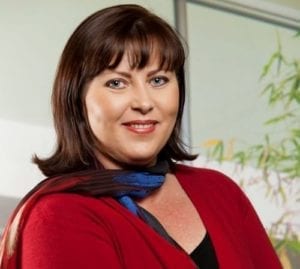By Hester Hopkins, senior manager of Customs and Global Trade at Deloitte
The new customs management system by SARS marks a significant milestone for businesses all over South Africa. The new system, Interfront, which went live over the weekend of 17 August with virtually no interruption to trade and business, is a transition from the old legacy system implementedas far back as 1970. The new system is seamless – and impressive in that there were no major logistical disruptions and bottlenecks, unlike other parts of the world where similar systems were implemented by other customs administrators. So what does this mean for business and trade?Firstly, the fact that SARS now has a single integrated software platform for customs will result in many benefits for business. These include fewer interventions that are costly and often create delays in the supply chain. This is due to the fact that integral to the new customs system is a sophisticated risk engine thatdetermines which shipments should be stopped. Once stopped, customs then has the ability to send the container through an X-ray scanner, in a non-intrusive way, to determine whether the risk profile of the contents justifies a full unpack and inspection. This is a major saving for business both in terms of accessing their product efficiently, as well as reducing handling and storage costs at the port, which could amount to anywhere between R10 000 and R20 000 in some cases.A further benefit of the new system is its case manager functionality, which randomly allocates selected shipments for inspection to checking officers at one of SARS’s four processing centres around the country. The system also includes a price reference database, which will help to combat undervaluation of imports – an issue that is hurting South African businesses and industries. SARS has also developed Easy Docs and Easy Packerand have made these available to trade for free, to help streamline the process and to reduce the amount of manual paper required. These packages help to convert documents into the required electronic format for processing through the new system.
On the flipside, SARS will now have much more data and intelligence on traders, which will make their audit capability much stronger. It is therefore important for businesses to equally invest in their customs staff, processes and systems – first to ensure that they continue to improve their compliance levels and, second,to maximise the current and future benefits of this new system and the overall modernisation programme (for example the recently launched Preferred Traderprogramme). The key to the success of this project, which clearly has taken years of careful planning from SARS, is the collaboration and partnership that SARS has had with the trade community throughout this journey. This process started as early as 2010 and, in some cases, meetings between SARS and the trade community were held on a weekly basis to ensure that all glitches and unforeseen issues were dealt with and that the systems were adequately tested. Some interesting facts are that SARS processes 5.5 million declarations per year at a customs value of R2.5 trillion. This amounts to 4.3 million containers across 4 862 km of sea line, 2 798 km of land line, 10 seaports, eight airports, one inland port, 17 SACU (Southern African Customs Union) land borders and 35 non designated borders by roughly 3 000 customs staff. This is great step forward by SARS and helps to reinforce South Africa’s position as the “gateway to Africa” for international investment on the continent.






